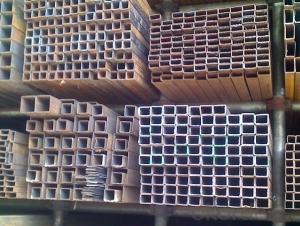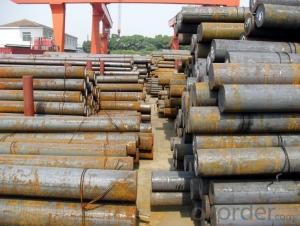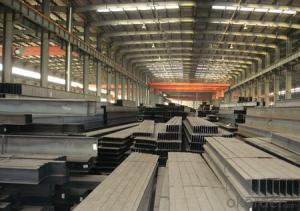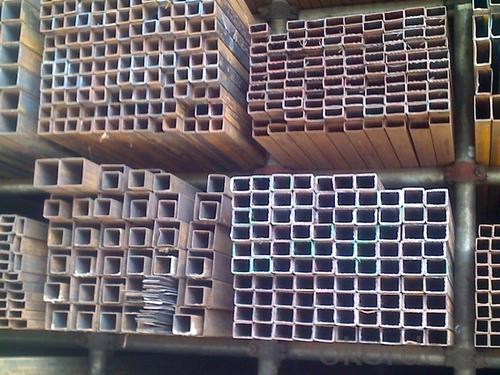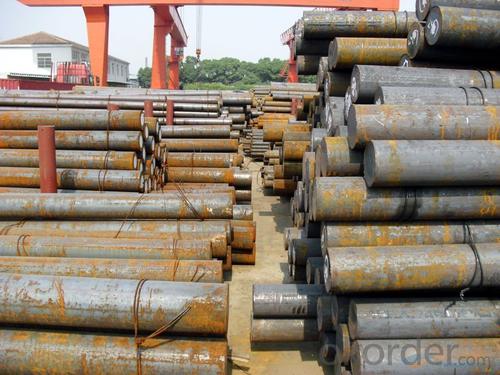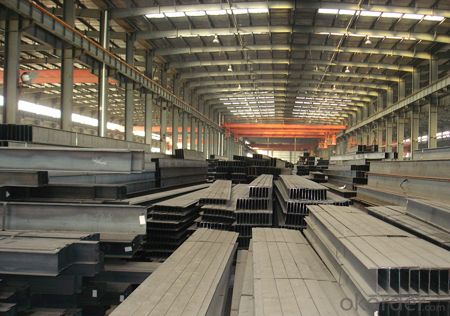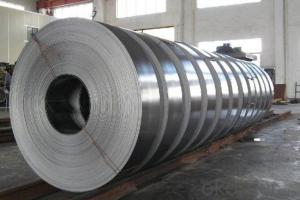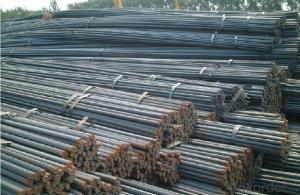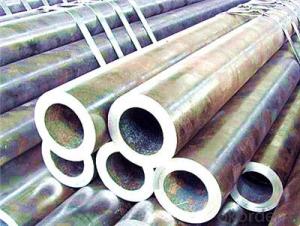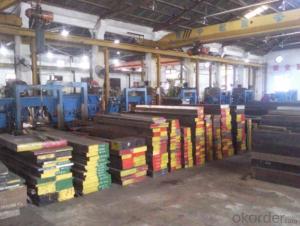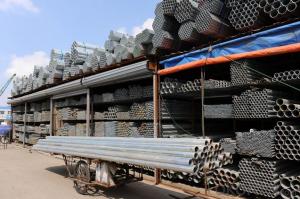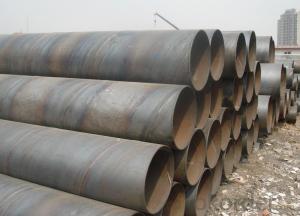Steels China Manufacture Building Material Construction on Sale
- Loading Port:
- Tianjin
- Payment Terms:
- TT OR LC
- Min Order Qty:
- 100 m.t
- Supply Capability:
- 1000 m.t/month
OKorder Service Pledge
OKorder Financial Service
You Might Also Like
1.Packaging & Delivery
Packaging Detail: | in bundles or as customer's requirement |
Delivery Detail: | Within 30days after receiving your deposit or copy of L/C |
2.Specifications
HRB400,HRB500 Steel Rebars
1.China direct supplier
2.Best service
3.Competitive price
4.Quantity assured
3.Product Description
Name | High Tensile Export Reinforcing Steel Bar ,Deformed Steel Bar ,HRB400B,HRB,46B,HRB500 Building Construction Material |
Standard | ASTM A615 /BS BS 4449 /GB HRB/ JIS G3112 |
Grade | A615 Gr40/60/75 BS 4449 Gr460,B500 GB HRB335,HRB400 ,HRB500
JIS G3112 SD390
|
Diameter | 6mm-40mm |
Length | 6-12m |
Technique | Low temperature hot-rolling reinforcing deformed steel rebar |
Tolerance | As the standard or as your requirement |
Application | Building, construction, road, bridge,etc |
Certificated | BV |
MOQ | 500tons per size steel rebar |
Packing details | Steel rebar packed in bundle or as your requirement |
Delivery | Within 30 days after deposit |
Payment | T/T or L/C |
4.Chemical Composition
Grade | Technical data of the original chemical composition (%) | |||||||
C | Mn | Si | S | P | V | |||
HRB400 | ≤0.25 | ≤1.60 | ≤0.80 | ≤0.045 | ≤0.045 | 0.04-0.12 | ||
Physics capability | ||||||||
Yield Strength(N/cm2) | Tensile Strength(N/cm2) | Elongation (%)
| ||||||
≥400 | ≥470 | ≥14 | ||||||
Grade | Technical data of the original chemical composition (%) | |||||||
C | Mn | Si | S | P | V | |||
HRB500 | ≤0.25 | ≤1.60 | ≤0.80 | ≤0.045 | ≤0.045 | 0.04-0.12 | ||
Physics capability | ||||||||
≥500 | ≥630 | ≥12 | ||||||
5. Theorectical weight
Diameter (MM) | Cross Sectional Area (MM2) | Theorectical Weight (KG/M) | Weight of 12M Bar (KG) | A Ton Contains 12M Bars (PCS) |
6 | 28.27 | 0.222 | 2.664 | 375.38 |
8 | 50.27 | 0.395 | 4.74 | 210.97 |
10 | 78.54 | 0.617 | 7.404 | 135.06 |
12 | 113.1 | 0.888 | 10.656 | 93.84 |
14 | 153.9 | 1.21 | 14.52 | 68.87 |
16 | 201.1 | 1.58 | 18.96 | 52.74 |
18 | 254.5 | 2 | 24 | 41.67 |
20 | 314.2 | 2.47 | 29.64 | 33.74 |
22 | 380.1 | 2.98 | 35.76 | 27.96 |
25 | 490.9 | 3.85 | 46.2 | 21.65 |
28 | 615.8 | 4.83 | 57.96 | 17.25 |
32 | 804.2 | 6.31 | 75.72 | 13.21 |
36 | 1018 | 7.99 | 98.88 | 10.43 |
40 | 1257 | 9.87 | 118.44 | 8.44 |
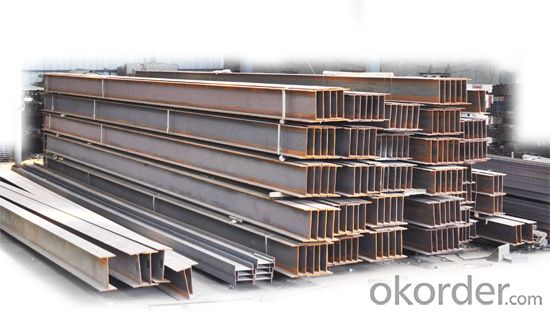
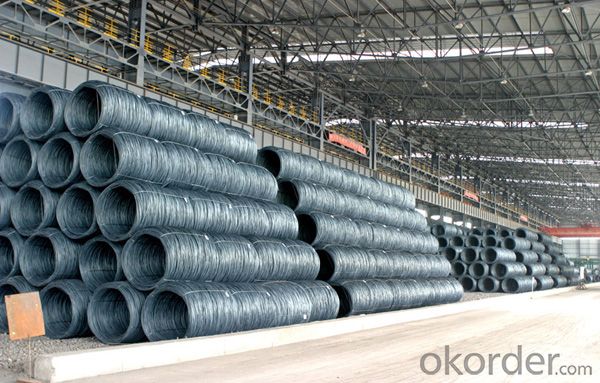
- Q: What is the difference between steel pipes and PVC-M pipes?
- Steel pipes are made of a strong and durable metal, while PVC-M pipes are made of a thermoplastic material known as polyvinyl chloride modified. The main difference lies in their composition and characteristics. Steel pipes are typically heavier and more robust, offering greater strength and resistance to high pressure and temperature. On the other hand, PVC-M pipes are lightweight, flexible, and corrosion-resistant, making them ideal for applications where chemical resistance and ease of installation are crucial factors.
- Q: Can steel pipes be used for fire sprinkler systems?
- Yes, steel pipes can be used for fire sprinkler systems. Steel pipes are commonly used in fire sprinkler systems due to their strength, durability, and fire-resistant properties. They are capable of withstanding high temperatures and are less prone to damage from fire, making them a suitable choice for such systems.
- Q: What is the minimum wall thickness for steel pipes?
- The minimum wall thickness for steel pipes depends on various factors such as the pipe size, pressure rating, and intended use. However, as a general guideline, the minimum wall thickness for steel pipes is typically determined by industry standards and regulations, and it can range from a few millimeters to several inches. It is important to consult specific codes and standards relevant to the application to accurately determine the required minimum wall thickness for steel pipes.
- Q: Can steel pipes be used for underground fuel pipelines?
- Yes, steel pipes can be used for underground fuel pipelines. Steel pipes are commonly used for various types of pipelines due to their durability, strength, and resistance to corrosion. When it comes to underground fuel pipelines, steel pipes are a popular choice due to their ability to withstand high pressure and temperature fluctuations. Additionally, steel pipes provide excellent protection against external elements, such as soil movement or chemical reactions, ensuring the safety and integrity of the fuel transportation system. Proper insulation and coating can further enhance the corrosion resistance of steel pipes, making them a reliable option for underground fuel pipelines.
- Q: How are steel pipes used in the power generation sector?
- Steel pipes are widely used in the power generation sector for various purposes. They are primarily used for transporting fluids, such as water, steam, and oil, as well as gases, in power plants. Steel pipes are also used for constructing pipelines that carry fuel, like natural gas or coal, to power plants. Additionally, they are used for structural purposes, supporting equipment, and maintaining the overall integrity of power generation facilities.
- Q: How to distinguish between steel pipe and spiral pipe material?
- Steel pipe according to the pipe material (ie steel) can be divided into: carbon tube and alloy tube, stainless steel tube.Carbon tube can be divided into ordinary carbon steel tube and high quality carbon structure tube.
- Q: What are the advantages of using steel pipes in the mining industry?
- One of the key advantages of using steel pipes in the mining industry is their exceptional strength and durability. Steel pipes can withstand high-pressure environments, heavy loads, and harsh conditions commonly found in mining operations. Additionally, steel pipes are resistant to corrosion, which is vital in mining where water and other chemicals are often present. Moreover, steel pipes offer excellent thermal conductivity, allowing for efficient transportation of fluids, such as water or slurry, crucial for mining processes. Lastly, steel pipes are relatively easy to install and maintain, making them a preferred choice for mining projects.
- Q: Are steel pipes magnetic?
- Yes, steel pipes can be magnetic. Steel, which is primarily composed of iron, is a ferromagnetic material. This means that it can be magnetized or attracted to magnets. However, not all steel pipes are magnetic as the magnetic properties of steel can vary depending on the specific composition and production methods used. In some cases, steel can be made non-magnetic by adding certain alloying elements or by subjecting it to specific heat treatments. Additionally, the strength of the magnetic field that steel pipes can exhibit can vary depending on factors such as the thickness of the pipe and the strength of the magnet being used.
- Q: Are steel pipes suitable for potable water systems?
- Indeed, steel pipes prove to be an appropriate choice for potable water systems. Due to their robustness, longevity, and ability to resist corrosion, they are frequently employed in such systems. These pipes can endure substantial pressure and transport significant quantities of water. Furthermore, their versatility is evident as they can be effortlessly welded together, rendering them suitable for a wide range of applications within potable water systems. Nevertheless, it is crucial to emphasize the importance of regular inspections and adequate maintenance to avert potential problems such as rust or contamination.
- Q: What is the fire rating of steel pipes?
- Several factors determine the fire rating of steel pipes. Steel possesses inherent fire resistance due to its high melting point and low thermal conductivity. However, the fire rating of steel pipes can be further improved by employing fire-resistant coatings or insulation materials. These additional measures can offer different levels of fire protection, typically quantified by how long the pipes can retain their structural integrity during a fire situation. The precise fire rating of steel pipes may differ depending on the thickness and type of coating or insulation employed. To ascertain the appropriate fire rating requirements for specific applications, it is crucial to refer to industry standards, such as those established by organizations like the National Fire Protection Association (NFPA), or consult with fire safety professionals.
Send your message to us
Steels China Manufacture Building Material Construction on Sale
- Loading Port:
- Tianjin
- Payment Terms:
- TT OR LC
- Min Order Qty:
- 100 m.t
- Supply Capability:
- 1000 m.t/month
OKorder Service Pledge
OKorder Financial Service
Similar products
Hot products
Hot Searches
Related keywords
